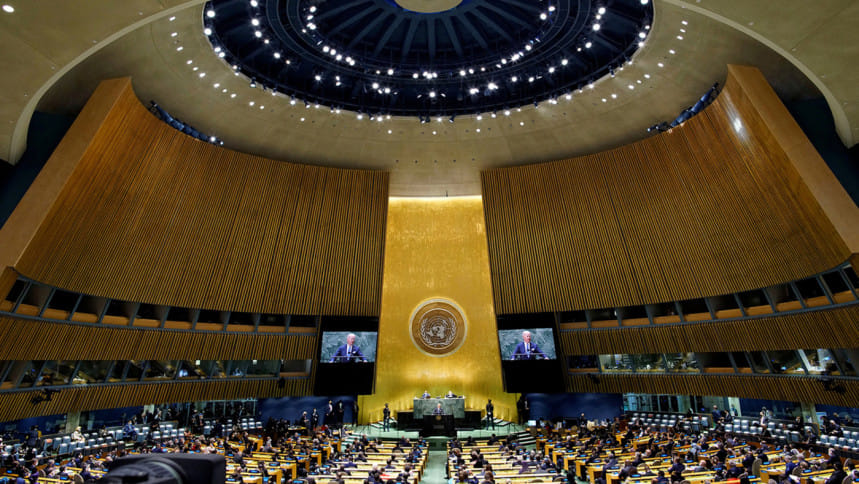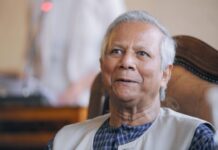
Bangladesh on Thursday abstained from voting on a UNGA resolution calling for an end to the war in Ukraine, just hours before the conflict entered its second year yesterday.
The UN General Assembly (UNGA) at its eleventh emergency special session demanded Russia’s immediate withdrawal from Ukraine, in line with the UN Charter.
The resolution was adopted as 141 member states voted in favour and seven against — Belarus, the Democratic People’s Republic of Korea, Eritrea, Mali, Nicaragua, Russia and Syria.
Meanwhile, Bangladesh, China, India, Iran, and Pakistan were among the 32 countries that abstained from voting.
So far, Bangladesh voted in favour of one UN resolution supporting the territorial integrity of Ukraine and defending the principles of the UN Charter and abstained from voting on three resolutions against Russia.
About Bangladesh’s position in the UN resolution, Foreign Ministry Spokesperson Seheli Sabrin told reporters on Thursday that Bangladesh usually abstains from voting when it goes against any specific country.
“We don’t vote on any UN resolution on any specific country unless there are violations of international humanitarian law,” she explained.
The UNGA resolution adopted reiterated its demand that Russia “immediately, completely and unconditionally withdraw all of its military forces from the territory of Ukraine and called for a cessation of hostilities”.
According to UN News, the UNGA resolution urged member states to cooperate in the spirit of solidarity to address the global impacts of the war on food security, energy, finance, the environment, and nuclear security and safety.
Underscoring that arrangements for a lasting peace should consider these factors, the UNGA also called upon all nations to support the secretary-general in his efforts to address these impacts.
The Assembly also reaffirmed its commitment to the sovereignty, independence, unity, and territorial integrity of Ukraine within its internationally recognised borders, extending to its territorial waters.
The resolution also emphasised the need to ensure accountability for the most serious crimes under international law committed in Ukraine through independent national or international investigations and prosecutions to ensure justice for all victims and the prevention of future crimes.
At the outset of the session on Wednesday, the Assembly President, Csaba Kőrösi, said that in this “new chapter of history”, the world is facing “stark choices about who we are as an international community.
“These choices will either set us on a path of solidarity and collective resolve to uphold the tenets of the UN Charter,” he said, “or a path of aggression, war, normalised violations of international law and collapsed global action.”
Days after the February 24, 2022 invasion, UN Security Council members voted to allow the General Assembly to convene the eleventh emergency special session after Russia had vetoed a resolution that would have condemned the invasion of Ukraine.
In line with resolution 377A(V), adopted in 1950, the Assembly is able to take up international peace and security matters when the Council fails to do.










